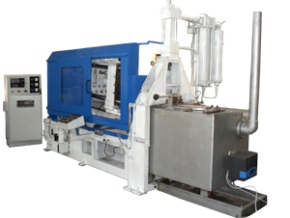Forcing molten metal under high pressure into a mould cavity is what die casting is all about. However, to understand the process better and what Dynacast die cast design does is better to look at what is normally cast. Of course clicking on dynacast.com can never be enough to understand the entire process and how the end product becomes helpful at the end of the process. The major die casting alloys that exist include: zinc, aluminium, magnesium, copper, lead and tin. In addition, ferrous die casting can also be carried out, though it happens on rare occasions. However, each alloy carries its own advantage and this is explained as follows:
Zinc is the easiest metal to cast. It has high ductility and has high impact strength that will give you reasons to choose on it while visit website your equipment. The metal can also be easily plated and carries characteristics that allows for its being economical to small surfaces. It is efficient as it promotes long die life.
Aluminium is a thin walled, light weighed metal that has a high dimensional stability for complex shapes. It is resistant to corrosion and this means it has the ability to live longer than other metals. The metal has high metal and electrical conductivity, a factor that makes the metal to retain its strength even at high temperatures .magnesium is another alloy which is the easiest to machine. Magnesium has the excellent strength to weight ratio making it the lightest alloy commonly die cast.
Copper is the hardest alloy. It is resistant to corrosion and therefore you can be sure to have it longer than other metals. Copper also carries the highest mechanical properties of alloys and is also considered to be the best in offering resistance to wear. It has excellent dimensional stability and has the strength almost similar to that of steel.
Lead and tin have high density. The alloys have close dimensional accuracy and as result they are almost similar in their characteristics. They are normally used in the special forms of corrosion resistance and therefore the two also assures you of their long life. The two are not used in food staff due public health reasons that are normally given out by health experts. Every metal however, carries its own advantages. Depending on the nature of the die casting you could be in need of, any of the alloys could work out best.
